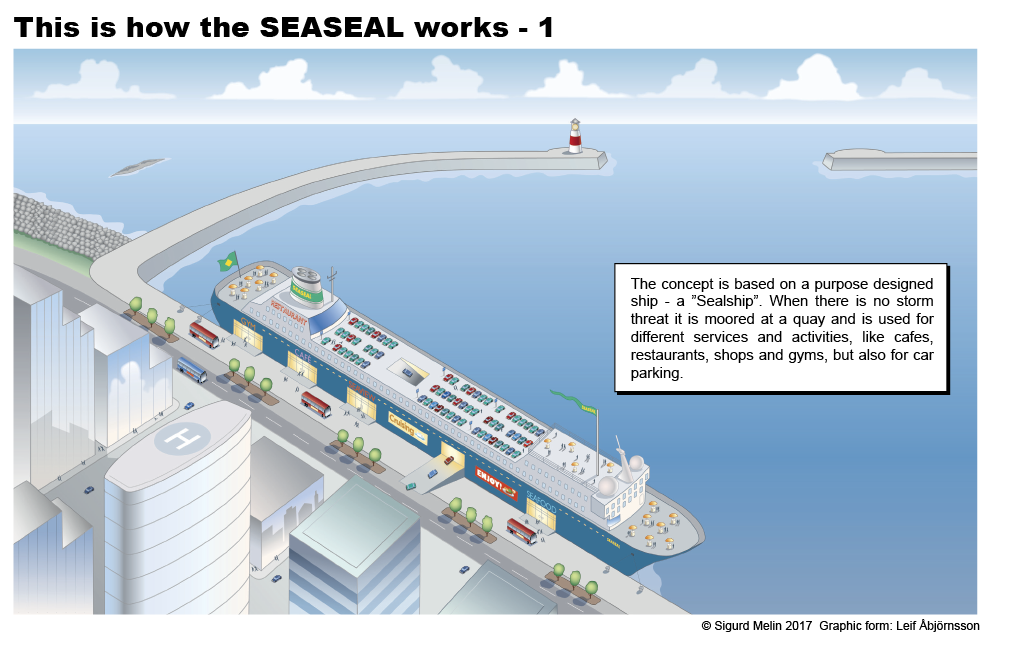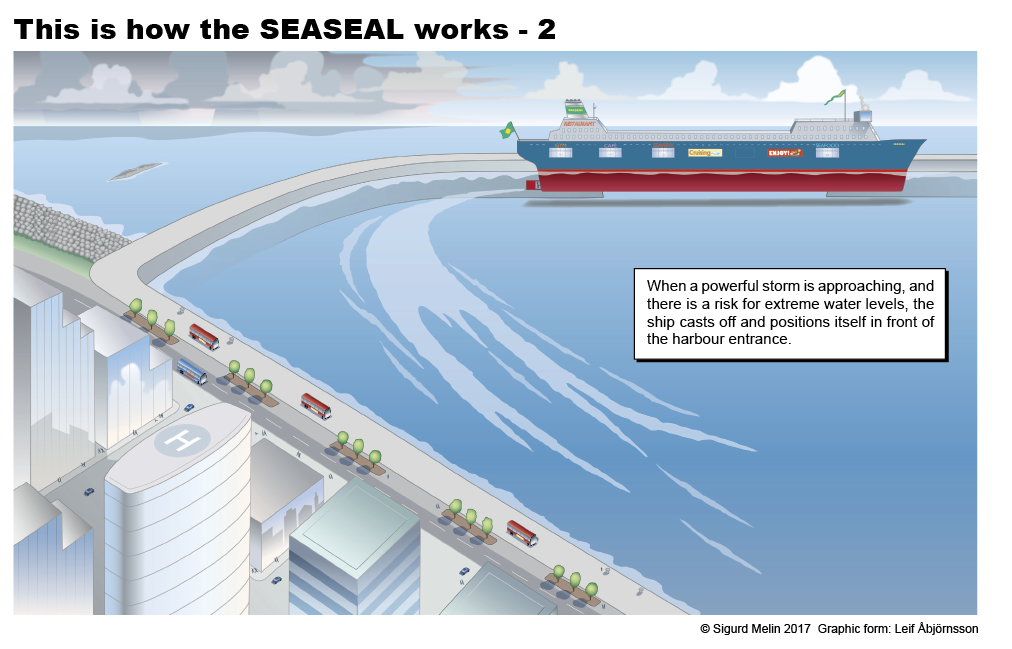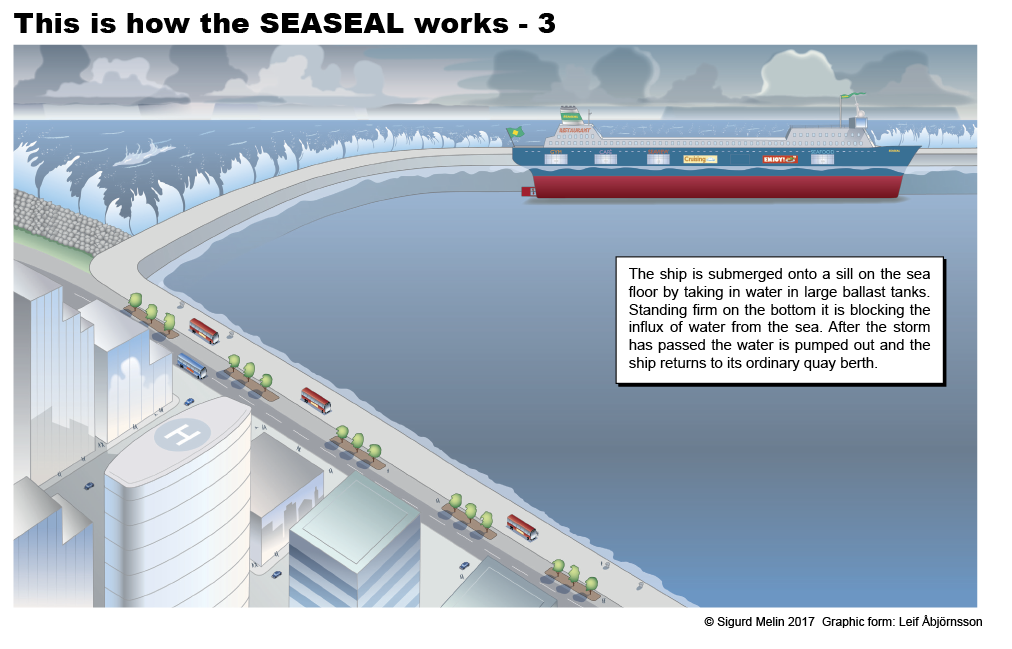SEASEAL Storm Surge Barrier
Many coastal cities suffer from flooding when winds, low air pressure, and tide coincide, and the problem will escalate in the future due to rising sea levels. Therefore, storm surge barriers have been constructed to protect some cities, like London, Saint Petersburg, Rotterdam, and Venice. Many other cities around the globe consider following in the years to come, but the extremely high costs are a major deterrent.
Building a protective barrier across the harbor entrance is a very costly project, but it is the gates that are the biggest technical challenge and cost the most. The free opening needs to be wide and deep enough to allow for commercial navigation. This requires giant mechanic constructions with moving parts the size of a hydroelectric power plant. Machinery needs to be 100% reliable.
Swedish inventor Sigurd Melin, the developer of the “NOAQ Boxwall” free-standing flood barrier, had noted that many coastal cities were discussing the problem, but also that they hesitated to go on due to the huge costs. Recently the US Corps of Engineers presented a plan to protect the Houston area in Texas with this type of storm surge barrier. The cost? 26 billion USD.
Sigurd came up with an idea to instead use a purpose constructed ship as a sluice gate. Such a solution make use of well-known (shipbuilding) technology, it allows for openings that are both wide and deep, and it eliminates the need for costly large scale mechanics. And it only requires one moving part – the ship itself.
The geometry of the ship’s hull would match that of the opening between the piers in the harbor entrance. When a storm is approaching the ship should be positioned in front of the opening and
submerged onto a sill by taking in water, either in certain ballast tanks or directly in the hull. When the storm had passed the ship should be pumped dry and return to its ordinary quay berth.
But it is more to this. An important feature of the concept is that the ship is designed for other purposes when not serving as a sluice gate, i.e. during the 360+ days a year when there are no dangerous storms in sight. Moored alongside a quay in the city center it provides valuable space for commercial activities, like restaurants, shops, gyms, etc. It may also serve as a floating multistory parking garage. Hereby the ”sluice gate” will more or less pay for itself, which means a substantially lower total cost for the project, compared to the traditional solution with stationary gates having one function only.



After having patented the idea Sigurd and his wife founded a new company, Seaseal Port Protection AB, to commercialize the idea. They started by approaching the Swedish port of Uddevalla, which had recurrent problems with flooding from the sea. The city adopted the idea and carried out a prestudy, which is now being discussed.
“Although the shipyard of Uddevalla once built the world’s biggest supertanker, it is still a small city, which means a Seaseal solution here will not be too big and expensive. It may very well serve as a pilot project for larger cities, like Copenhagen, Boston, New York, Houston, etc”, says Sigurd Melin.
“Even if we can restrict global warming to some few percent, sea levels will continue to rise for centuries, which means that all coastal cities, sooner or later, need to protect themselves. Or surrender. Investing in a traditional mechanical storm surge barrier may save the city, but it may instead end up in another misery – bankruptcy. We are convinced that Seaseal offers a solution where you can save money while saving the city”.
